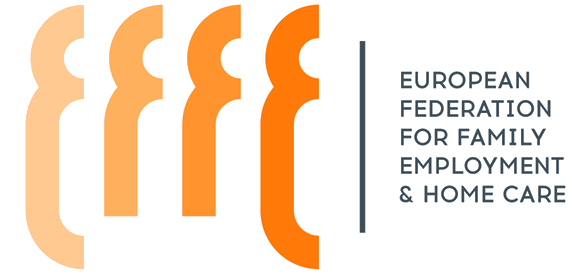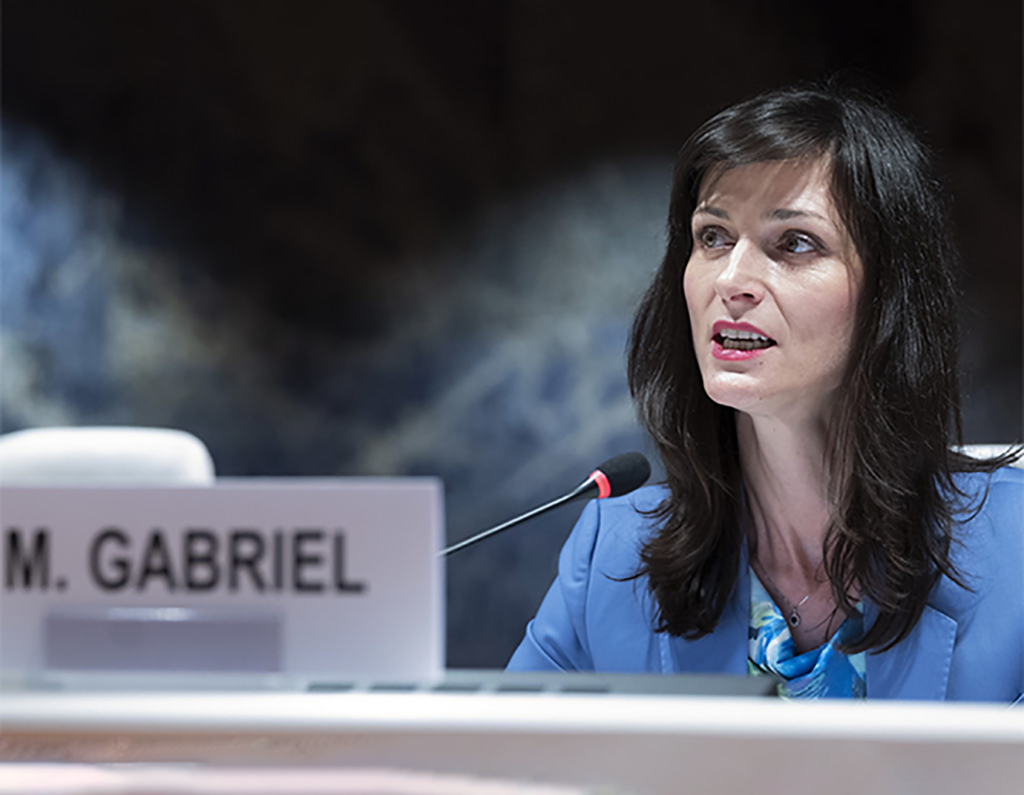
Those were the few introducing words of EU Commissioner for Digital Economy and Society Mariya Gabriel’s opening speech to the restitution conference of EFFE’s European White Paper on March 6 in Brussels.

Home employment sector happens to be going through a full-fledged digital transformation closely related to the ever widened use of digital tools by European households, all ages included. Be it the online procedure of work declaration, vocational training platforms or any other insurance or tax-related procedure, digital economy is bound to hold a key position in private households employing one or several workers to satisfy its daily needs.
As mentioned by the Commissioner during the conference from March 6, “online tools to simplify administrative, tax or insurance requirements for home and family workers would go a long way in helping to bring out what remains to a large extent an undeclared sector“. Domestic employment suffers from the persistence of a tradition of informality of domestic chores, often taken care of by relatives or by employees recruited outside from traditional professional procedures. The necessary professionalization of domestic employees and their recognition as well as that of the individual employers, values defended by EFFE, calls for an increased and facilitated access to and use of digital technologies.
As soon as adequate public systems or devices will be applied so as to encourage work declaration by employing households, declaration procedures will be greatly facilitated and accelerated – especially through digital platforms easy to use and therefore incenting to formalize domestic workers. Such a step shall also allow better accountability of the sector, better understanding of its stakes and better statistical assessment and census by Member States and European Union public policies.
France has for instance already taken some significant steps, notably through the 2003 digitization of Chèque emploi-service universel (CESU), the national domestic work voucher service, and the possibility of declaring an employee’s home online. Rethought in 2018, the site www.cesu.urssaf.fr is now accessible from a smartphone and allows not only the declaration of the employee, but also his direct remuneration deducted from contributions and other social taxes, automatically transferred to public treasury, as well as the consultation of paychecks and other administrative documents. In 2017, no less than 1.9 million French employers digitally declared 14 million domestic services provided by 600,000 domestic workers – allowing an estimated €2 billion social contributions public recovery. Digitization would also be a valuable tool for centralizing domestic job offers and requests and making it easier for a whole range of the population seeking domestic care and support. Belgium has also digitized its Titres-services, or Dienstencheques, with online declaration websites developed in 2017 for each of the 3 country’s regions: Wallonia, Flanders and Brussels-Capital.
Through its White Paper, EFFE draws up political proposals toward European and national decision makers to improve the lives of millions of European citizens for the next term of office. The 8th proposal requires better institutional support for digital inclusion and for greater development of collaborative platforms: older people are particularly affected by the digital divide in the EU, as they suffer from difficulty of using digital technologies because of their lack of habit and generally lack of adequate training for these uses. According to Eurostat, if 90% of people under 55 in the 28 countries of the European Union use the Internet on a regular basis, this figure falls to 78% for people aged 55 to 64, then to 58% for people aged 65 and over.
The next multiannual financial framework of the European Union, i.e. the comprehensive budget plan of the European Union including all planned expenditure over a period of 6 years, will extend from 2021 to 2027, and though being still in negotiations between the three institutions, it is already promising to focus on the digital economy with a projected budget of €9.2 billion, categorized within the Digital Europe program. Within this budget, more than €700 million will be entirely dedicated to the development of digital skills of citizens. Such an objective also coincides very opportunely with the process of professionalization of the domestic employees EFFE has committed itself to achieve: increasing skills related to the use of technologies and digital tools will soon be an unavoidable condition required from domestic workers to accompany the elderly or the disabled in their administrative procedures.
A major political objective in the EU’s agenda for the next decade, digital technologies are bound to replace human action in a wide array of industrial, professional and sectors areas. The issue of artificial intelligence has for example been thoroughly looked through by the European Commission in the past couple years, with tenders dedicated to technological startups and specialized companies – sketching a world of possibilities regarding future use of domestic tools (home automation, online trade, entertainment and AV, private security). When it comes to home employment sector, it would seem rather wise to reach a smart balance between digital and technological revolution that would still be factor of human and economic progress, and maintaining the human capital in delivering human-centered services to the most vulnerable.
Find the White Paper and its proposals here:
https://www.effe-homecare.eu/wp-content/uploads/2019/03/White-Paper-EFFE-UK.pdf
Find the video with political commitments here: